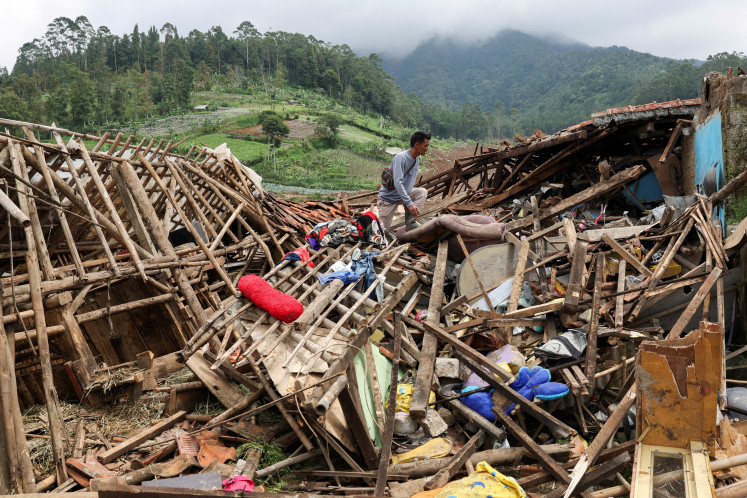Popular Reads
Top Results
Can't find what you're looking for?
View all search resultsPopular Reads
Top Results
Can't find what you're looking for?
View all search resultsEducation the main driver for closer Indonesia-Australia ties
As the Indonesian and Australian governments try to give more substance to their relations, their foreign ministers have agreed that education could be the main driver to building what they termed stronger people-to-people contacts
Change text size
Gift Premium Articles
to Anyone
As the Indonesian and Australian governments try to give more substance to their relations, their foreign ministers have agreed that education could be the main driver to building what they termed stronger people-to-people contacts.
Australian Foreign Minister Stephen Smith, addressing the Australia-Indonesia conference Friday, pledged that Canberra would seek ways to promote the teaching of the Indonesian language at Australian schools and reinvigorate Indonesian studies at Australian colleges.
His Indonesian counterpart, Hassan Wirajuda, noted the declining number of Australians who were experts on Indonesia, down from a decade or so ago.
The three-day conference, opened by Prime Minister Kevin Rudd on Thursday, seeks ways to promote greater people-to-people links between the two countries as part of government efforts to broaden and deepen bilateral relations.
Rudd, in his keynote address, and Smith both observed that relations with Indonesia had reached an unusual stage, where government-to-government links were ahead of the other sectors, including even the trade and investment sectors.
The warmth in relations at the government level is reflected in the frequency of official contacts at the top level: President Susilo Bambang Yudhoyono and Rudd have met on 11 occasions in the past year, and Smith and Wirajuda seven times. Trade ministers Mari Pangestu and Simon Crean have the most contact, meeting 12 times in as many months as they negotiate trade deals between the two countries.
Besides building stronger bi-lateral ties, the two govern-ments also work together on many international and regional issues, including in climate change, counterterrorism and at the World Trade Organization.
But more work is needed to promote ties at the grassroots level, both governments recognized, hence the need for the Sydney meeting this weekend.
Indonesia is the largest recipient of Australian development aid, with some of the money going into financing education projects in Indonesia.
Australia is currently involved in helping Indonesia build, repair and expand 2,000 schools across 20 provinces.
“Education is a key element of our development assistant work in Indonesia, as well as a driver of sustained people-to-people ties between our two countries,” Smith said.
The Australia-Indonesia Institute, marking its 20th anniversary this year, has been at the forefront of promoting greater exchanges of people between the two countries, including youths, journalists, religious leaders and scholars.
The Australian government awards 300 scholarships each year for Indonesians to study at Australian universities.
In total, some 19,000 Indonesians are estimated to be studying in Australia. By contrast, there are only an estimated 150 Australians studying in Indonesia each year.
The Australian government has also allocated $60 million to boost the study of Asian languages, including Indonesian, in Australia.
Australia is also investing in Asian studies at its universities, as well as funding programs at Indonesian universities.
“Academic links are particularly important as we look to build a new generation of Australian-Indonesian specialists,” Smith said.
“They’ve almost become an endangered species.”










